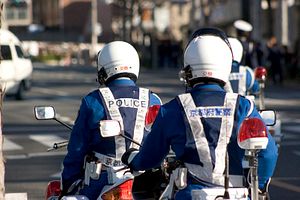The ousted icon of the auto industry Carlos Ghosn has lost the battle to appeal his second bail rejection and now faces two months longer in prison. In Japan, suspects who are denied bail must stay in detention for two months after charges are filed; their case is then reviewed on a monthly basis. Ghosn’s defense lawyer speculates he will be detained until the trial begins, which could take as long as six months due to its complexity.
Prosecutors have formally charged Ghosn, 64, on two counts of under-reporting income over five years and aggravated breach of trust from offloading personal investment losses to Nissan Motor Co. If convicted, Ghosn faces up to 20 years in prison.
The celebrated former Nissan chief, credited for saving the company from the brink of bankruptcy, has been dealt another blow. Nissan is planning to file a civil lawsuit against Ghosn for damages inflicted from the misuse of company funds, seeking $7.98 million dollars in compensation. A broader investigation into his financial misconduct has exposed personal expenses allegedly billed to Nissan, which includes a $63,000 annual membership to a yacht club in Brazil, donations to universities in Lebanon, a 2016 wedding ceremony to his second wife in Versailles, and yearly adviser fees paid to his sister totaling $1.7 million dollars.
During his first public court hearing on January 8, Ghosn confidently defended his innocence, saying Nissan was fully aware of his income and transactions.
As a high-profile auto executive, Ghosn’s already two months of pre-trial detention since his November 19 arrest has unleashed criticisms of human rights abuse. Prosecutors have repeatedly applied for extensions on Ghosn’s detention, taking advantage of a rule that allows 23 days of detention per criminal offense. Ghosn was re-arrested on fresh “breach of trust” charges in late December, restarting the clock on his detention and inevitably helping prosecutors build a case against him.
Criminal law expert Nobuhito Yoshinaka from Hiroshima University says pre-trial detention is a fairly normal practice in Japan that isn’t specifically targeting Ghosn. But he agrees with the Western view that there are elements of human rights violations.
Last week, Ghosn’s wife Carole wrote a nine page letter to Tokyo’s branch of Human Rights Watch slamming the “harsh” conditions Ghosn is experiencing in detention as a product of a “draconian system.” Carole says Ghosn has been subjected to hours of grueling interrogations without access to lawyers in an attempt to weed out a confession.
“In fairness, there are some misunderstandings and exaggerated comments due to a lack of correct knowledge about other countrys’ legal system or tradition,” says Yoshinaka. He explains that new video and audio recording protocol during interrogations was introduced in 2016. Any use of threats to pressure the suspect into confessing is illegal and excludable in a public trial. He believes the next stage for Japan should be a system allowing for a defense lawyer’s presence during interrogations to enhance the protection of the suspect’s due process rights.
Carole Ghosn disclosed her fear for her husband’s health, reporting he is being held in an unheated and tiny 7 square meter cell that is lit 24 hours a day. She further claimed he is being denied daily medication. Carole added that Ghosn is fed predominantly rice and barley, which has led to visible weight loss of 7 kilograms. So far, Ghosn has been denied access to his immediate family though he has been permitted to meet with defense attorneys and diplomats. His first public court testimony appears to have taken a toll on his health, with Ghosn falling ill in prison with a high fever.
Yoshinaka says Ghosn’s lack of family access can be explained by the nature of his alleged breach of trust and financial crimes. The lack of contact is a way for prosecutors to preserve evidence. “If family members or friends destroy or hide the evidence necessary for convicting, justice does not work. That’s why he has not yet been released on bail,” Yoshinaka says. At the first public hearing the judge called Ghosn a flight risk, with him holding three passports; French, Brazilian, and Lebanese.
Yoshinaka says generally speaking from a prosecutor’s perspective, proving the suspect’s intent is crucial to establish crimes like financial and political crime or corruption, which is why confession is valuable.

































